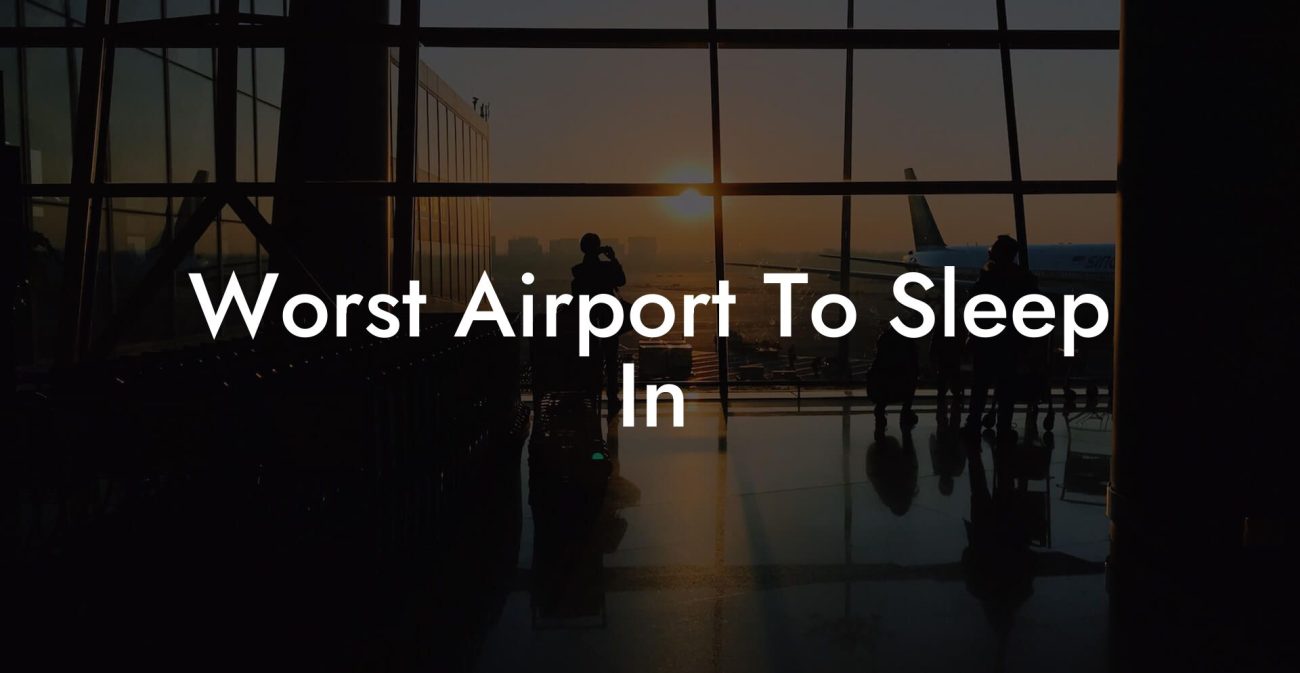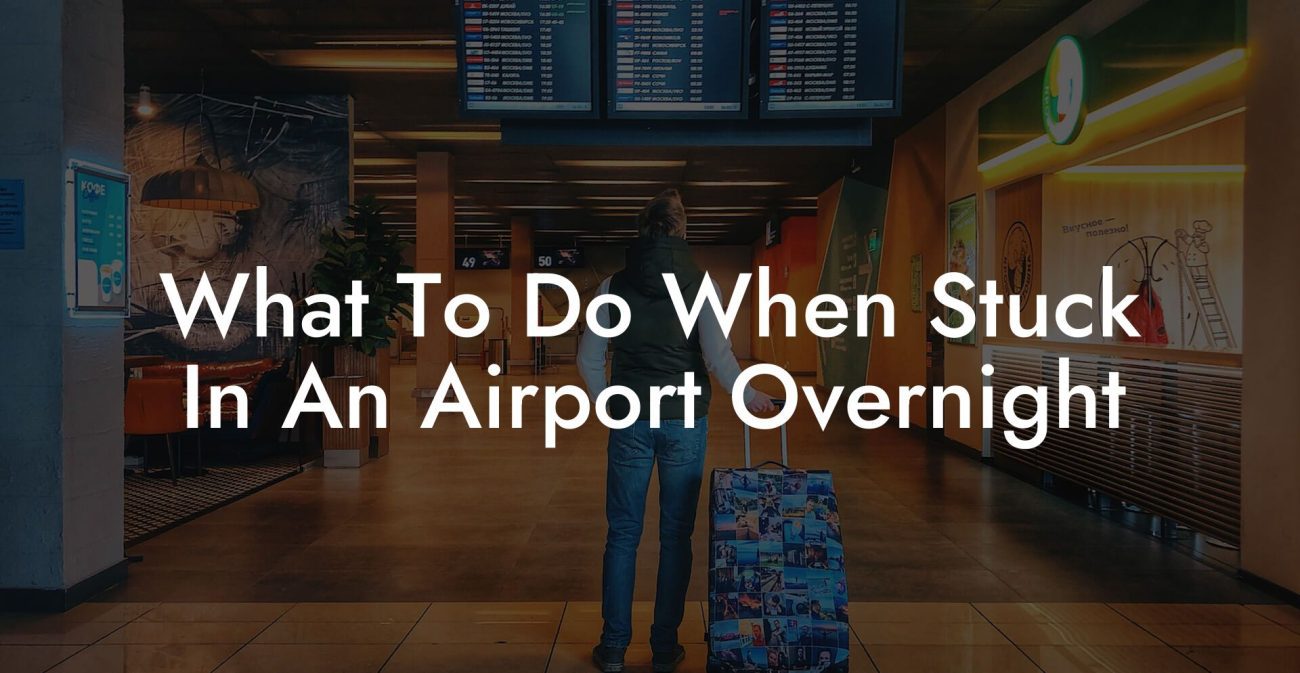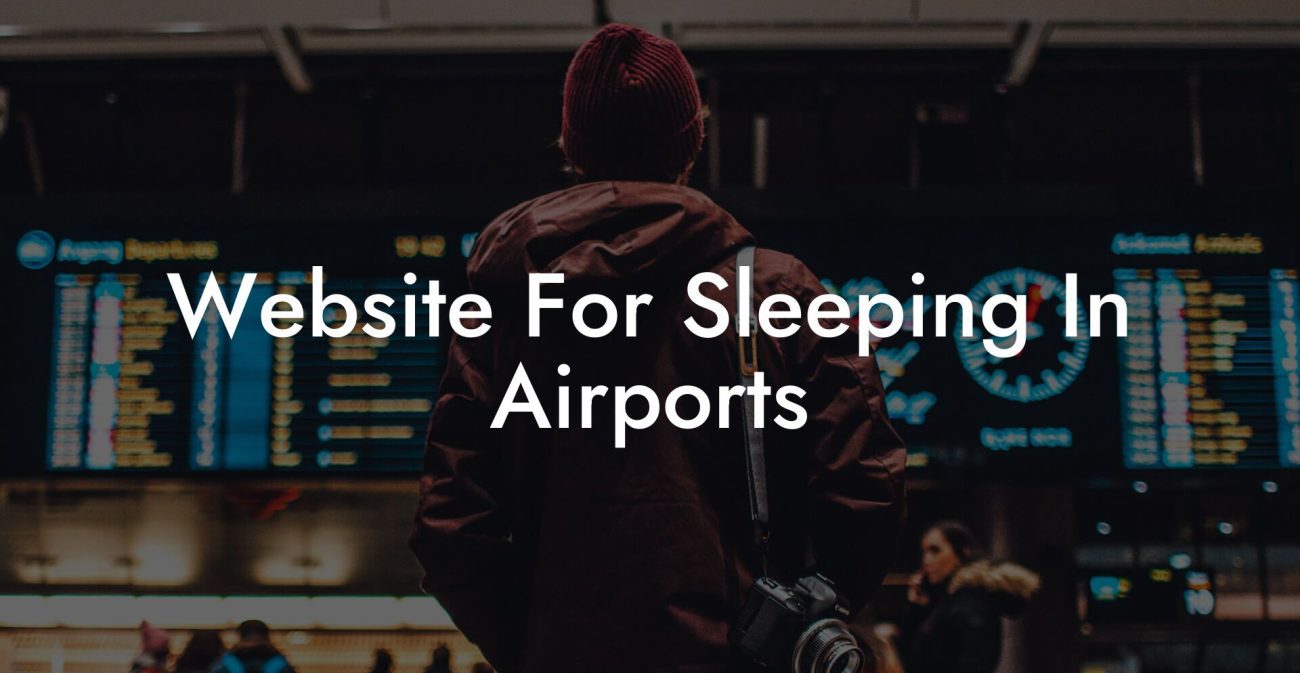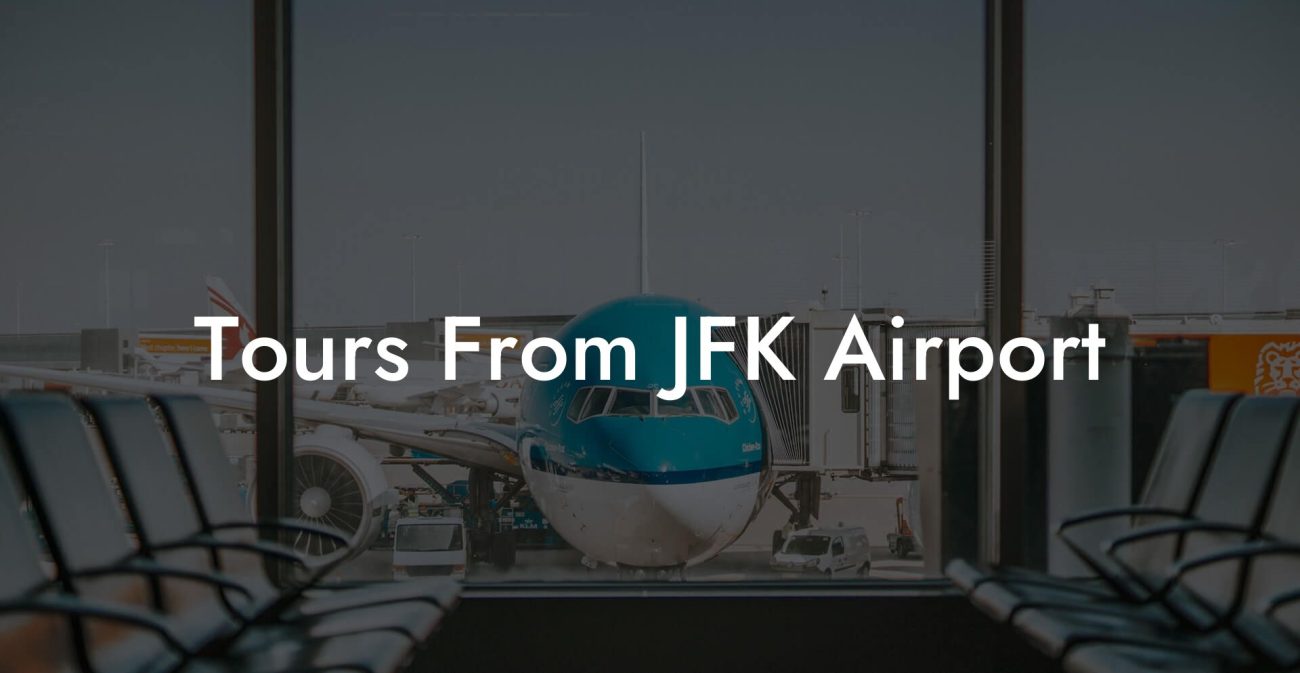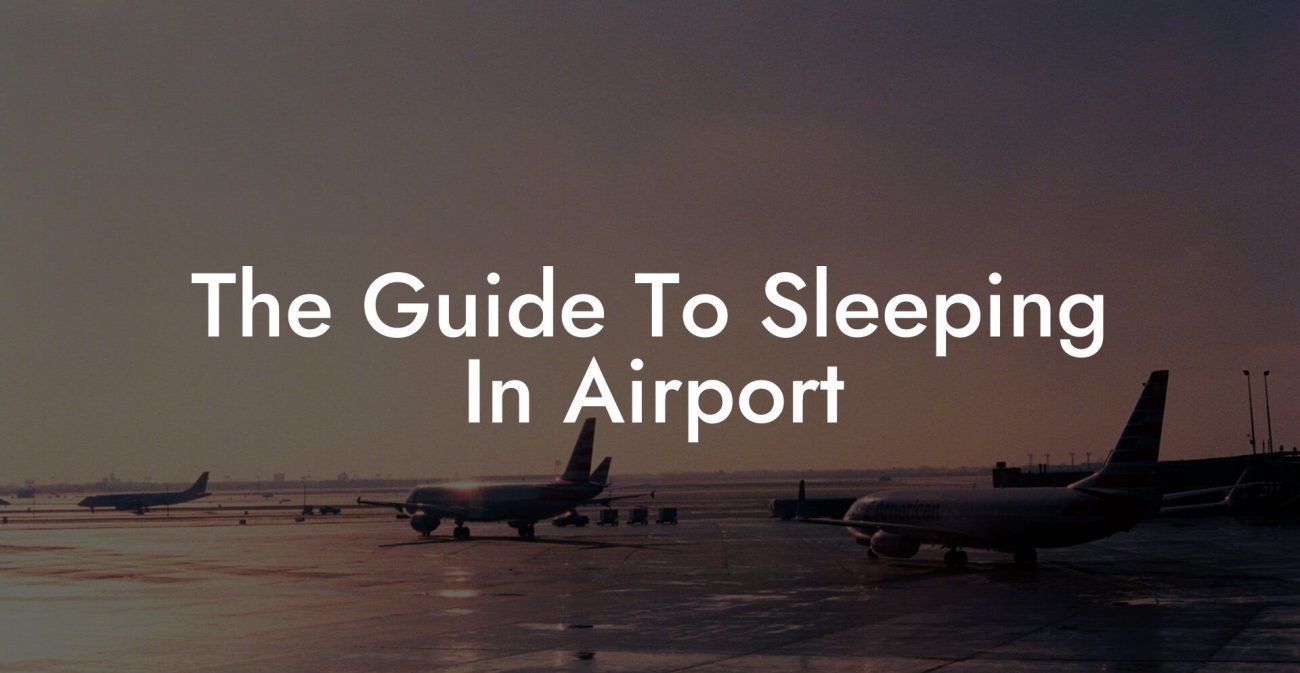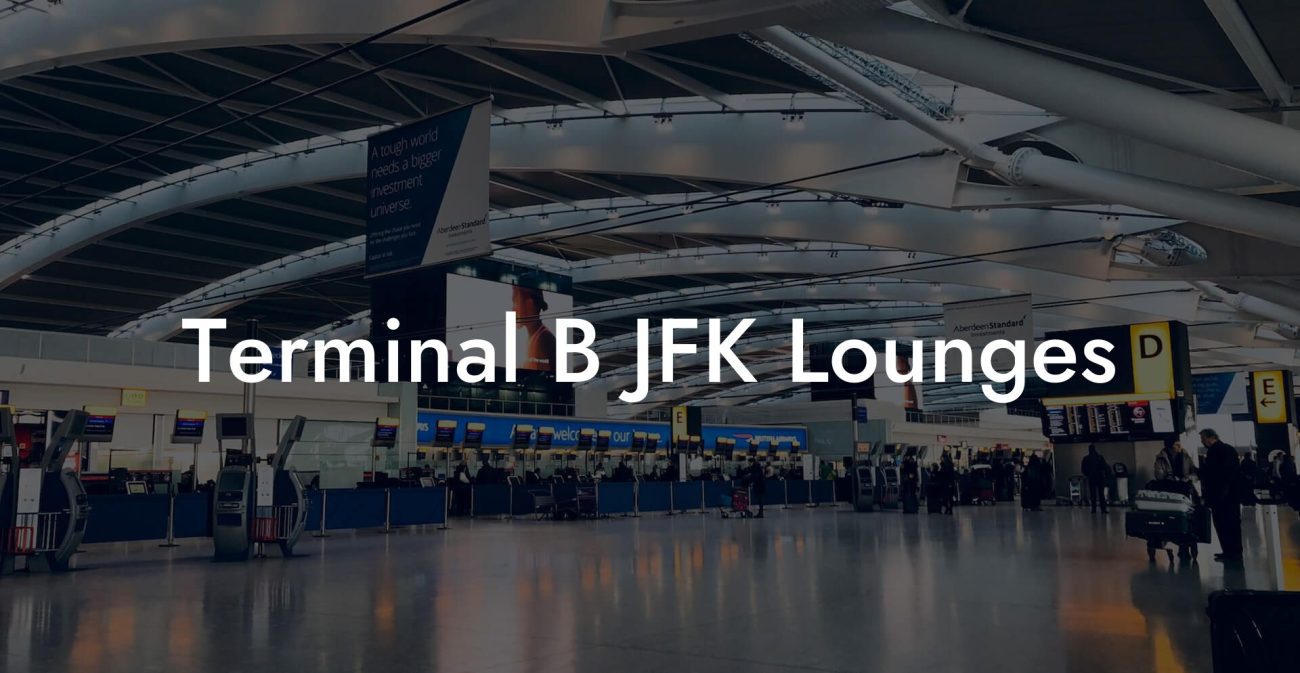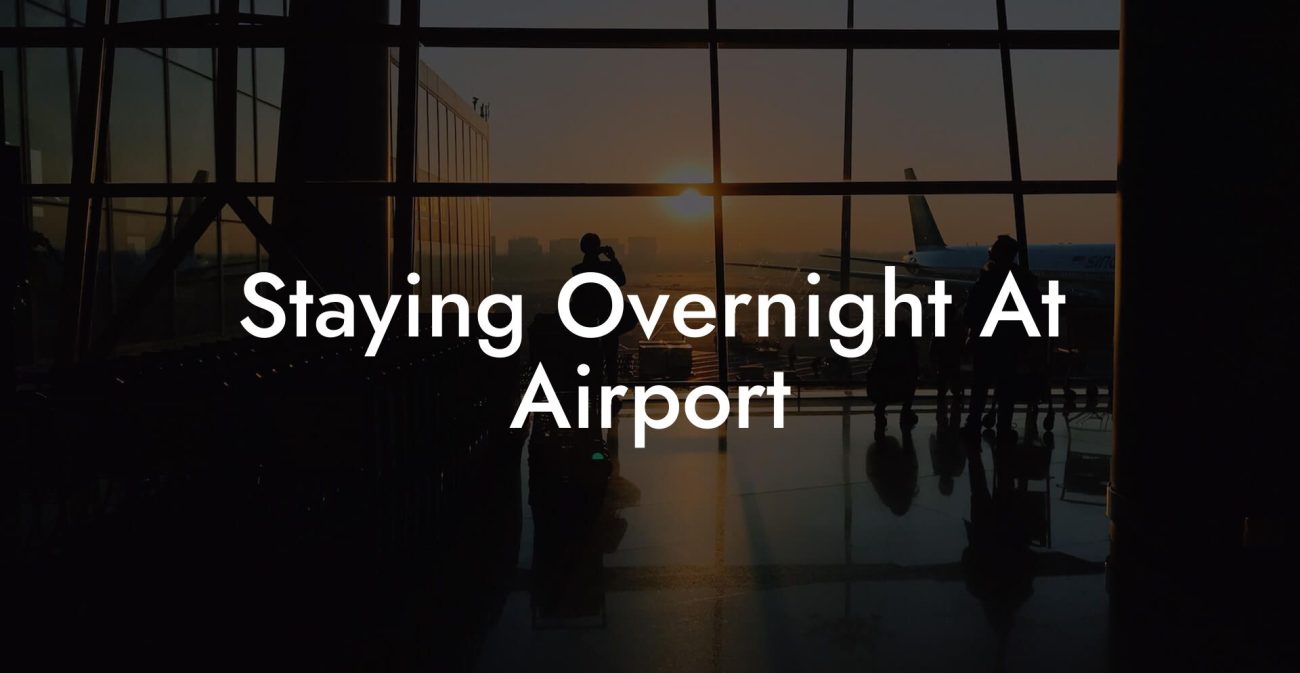Ever found yourself dozing off on a cold, hard bench in the middle of a bustling terminal, wondering if airport sleep is a myth, a miracle, or just an urban legend? Whether you’re a Gen-Z globetrotter or a millennial adventurer, this in-depth guide is here to answer one burning question: Are You Allowed To Sleep At Airport? Buckle up (or rather, recline your seat) as we dive into the ins and outs of airport sleeping policies, ingenious hacks for snagging the coziest corner, and the futuristic marvel of airport sleeping pods.
Quick Links to Useful Sections
- The Lowdown on Sleeping at Airports: What’s the Deal?
- Unpacking the Rules: Airport Sleep Policies Demystified
- General Guidelines and Legalities
- Airport Sleeping Pods and Lounges: The Ultimate Upgrade
- Airport Sleeping Pods 101: A Glimpse Into the Future of Travel Rest
- What Are Airport Sleeping Pods?
- Benefits of Sleeping Pods
- How to Sleep at an Airport: Pro Tips for the Ultimate Terminal Nap
- Scout Your Spot Before You Settle In
- Pack Your Sleep Essentials
- Blend In and Stay Low-Key
- Mind the Clock: Tactical Napping
- Know the Lay of the Land
- Comparing Airport Sleeping Options: Benches, Lounges & Pods
- Benches and Public Seating
- Airport Lounges
- Sleeping Pods
- Essential Gear for Your Airport Sleep Kit
- Safety and Security: How to Sleep Smart in an Airport
- Stay Alert to Your Surroundings
- Choose Crowded Over Isolated Spots
- Use Smart Travel Locks and Alarm Apps
- Keep Your Identification Handy
- Real-Life Stories: Travelers Who Nailed the Art of Airport Sleep
- The Jet-Setter’s Masterclass
- A Pod in Paradise
- The Budget Sleep Strategist
- Airport Sleeping Pods vs. Traditional Sleeping: What’s Worth Your Time?
- Traditional Sleeping in Lounges or Benches
- Resources and Community Support: Your Next Steps to Becoming an Airport Sleep Pro
- Online Forums and Social Media Groups
- Travel Apps and Websites
- Airport Websites and Customer Service
- Travel Blogs and Vlogs
- Maximizing Your Layover: Creative Hacks Beyond Just Sleeping
- Explore the Local Culture
- Work and Relaxation Hybrid
- Embrace the Digital Detox
- Expert Tips: How Airports Around the World Approach Sleep
- North America
- Europe
- Asia
- Australia and New Zealand
- Your Personalized Airport Sleep Plan: Crafting Your Best Rest Strategy
- Step 1: Do Your Homework
- Step 2: Pack Smart
- Step 3: Arrive Early and Scope It Out
- Step 4: Choose Wisely
- Step 5: Set a Sleep Schedule
- Travel Tech: Apps and Gadgets to Improve Your Airport Sleep Game
- Sleep Finder Apps
- Noise Machine and Sleep Tracking Gadgets
- Online Booking for Sleeping Pods
- Air Travel Etiquette: How to Be the Best Sleepy Traveler Around
- Keep It Low-Key
- Respect the Space
- Mind Your Belongings
- Airport Sleep: Myths vs. Reality
- Myth 1: Airport Sleeping Is Illegal
- Myth 2: You Must Pay for Every Minute of Comfort
- Myth 3: Sleeping at Airports Is Always Uncomfortable
- Bringing It All Together: Your Blueprint for Airport Sleep Success
- Integrative FAQs: Your Airport Sleep Questions Answered
- Empower Your Journey: The New Era of Airport Sleep
The Lowdown on Sleeping at Airports: What’s the Deal?
Let’s address the elephant in the terminal: sleeping at an airport is totally allowed in most cases. However, whether you’re catching a few winks between connecting flights or deliberately turning the terminal into your 24/7 home base, there’s a bit more to it than just finding a comfy bench. Airports around the world have varied policies, ranging from “sleep all you want” vibes to strict rules against camping out overnight. So before you get comfy with your travel pillow, it’s key to understand the dos, don’ts, and a few savvy strategies to ensure your airport siesta is both legal and luxuriously peaceful.
In our guide, we cover everything from airport sleeping pods – those fancy, futuristic, private sleeping spaces that are reshaping air-travel culture – to common tips that can transform even the busiest terminal into your personal chill zone. Prepare for a journey that’s equal parts informative, humorous, and downright practical.
Unpacking the Rules: Airport Sleep Policies Demystified
First things first: yes, you are generally allowed to sleep at an airport. But there are nuances that vary widely by country, airport size, and even by terminal. Let’s break it down.
General Guidelines and Legalities
Most airports recognize that travelers need rest, and many operate 24/7 with designated areas where sleeping is not only allowed but encouraged. However, if you plan on setting up camp for more than a few hours, consider these key points:
- Security Concerns: Airports have heightened security protocols, so if your behavior triggers alarms (or if you’re napping in a restricted area), you might attract unwanted attention from security personnel.
- Local Laws and Regulations: Some countries or cities enforce curfews or other regulations that may indirectly impact airport sleeping. For instance, in certain Asian airports, sleeping might be discouraged during peak hours.
- Duration of Stay: Occasional naps are typically fine, but setting up a long-term camp might lead to intervention by airport authorities.
- Designated Rest Areas: Many modern airports now offer dedicated “sleep zones” or lounge areas where travelers can rest without any hassle.
Essentially, airport sleeping is usually about striking a balance between finding a safe, quiet spot and staying within the boundaries of airport regulations. Just remember: the goal is to catch those Z’s, not to start a terminal slumber party.
Airport Sleeping Pods and Lounges: The Ultimate Upgrade
If your budget allows (or you just want to treat yourself because you’re awesome), airport sleeping pods are the modern traveler’s dream. These nifty, futuristic capsules offer privacy, comfort, and a bit of tech-savvy luxury that can make your layover feel like a mini-vacation.
Found in major international hubs, sleeping pods are designed to provide a soundproof and secure space where you can power nap or get a full night’s reset. Many pods come equipped with adjustable lighting, charging ports, and even mini-shower facilities. They’re perfect if you need to avoid the chaos of crowded terminals and don’t mind spending a few extra bucks for quality rest.
Airport Sleeping Pods 101: A Glimpse Into the Future of Travel Rest
The concept of airport sleeping pods isn’t just practical—it’s downright revolutionary. Think of them as a cross between a cozy Airbnb and a high-tech mini-hotel, meticulously designed for the jet-setting traveler.
What Are Airport Sleeping Pods?
Simply put, airport sleeping pods are compact, secure, soundproof capsules where you can sleep, relax, and even work if you’re on a long layover. They are often strategically located in airport lounges or near terminals. Their main objective is to provide a quality rest experience without the distractions of a busy terminal. For many, these pods serve as a reminder that travel doesn’t have to be an exhausting ordeal but can also be a surprisingly luxurious part of your adventure.
Benefits of Sleeping Pods
- Privacy: Enjoy your own secluded space without the looming presence of busy chairs or loud announcement systems.
- Comfort and Security: Floating on a comfy mattress in a well-insulated room, you can sleep without perturbation—ideal for both short naps and longer rest.
- Convenience: With features like charging stations, adjustable lighting, and even integrated Wi-Fi, sleeping pods cater to all your modern needs.
- Hygiene and Cleanliness: Regularly maintained, these pods are a boon in today’s era of heightened health awareness.
Whether you’re on a stopover or waiting for a delayed flight, a sleeping pod can turn a stressful wait into a rejuvenating experience that leaves you ready to conquer your next destination.
How to Sleep at an Airport: Pro Tips for the Ultimate Terminal Nap
If sleeping at an airport sounds like a solid plan but you’re not sure where to start, here are some killer tips to score the most comfortable (and legal) slumber session in any terminal.
Scout Your Spot Before You Settle In
The first rule of airport sleep is location, location, location. Take a stroll around the terminal to find quiet corners or chairs with neck support. Some airports have designated rest zones, complete with reclining chairs and dim lighting—these are your best bets for catching a zillion-minute snooze.
Pack Your Sleep Essentials
Never underestimate the power of a good travel pillow, a lightweight blanket, and even noise-cancelling headphones. An eye mask can be your secret weapon against disruptive terminal lights, and a set of earplugs will keep the constant hum of announcements at bay. If you’re a gadget lover, a portable charger and a travel alarm clock might also come in handy.
Blend In and Stay Low-Key
Being a discreet sleeper is the name of the game. Avoid setting up too elaborate a camp—your goal is to look like a tired traveler, not a permanent resident. Keep your belongings close and avoid making loud calls or drawing attention to your setup. Remember: the more subdued you appear, the less likely airport security or fellow travelers will disturb your beauty sleep.
Mind the Clock: Tactical Napping
While it’s tempting to dive into a full-on sleep marathon, be mindful of your flight schedule. Setting an alarm can save you from that all-too-common scenario of oversleeping your gate warning. Use sleep apps or a simple timer; just ensure that after your nap you’re refreshed, not rushing in a mad dash to the departure lounge.
Know the Lay of the Land
Some territories within terminals are more welcoming to sleepers than others. For example, quiet zones near gates or family areas in larger hubs often have less foot traffic and more comfortable seating. Spend a little time researching the airport layout online before you travel. This proactive approach can save you time and ensure that you score the best napping nook available.
Comparing Airport Sleeping Options: Benches, Lounges & Pods
The quality of your airport sleep can vary significantly based on where you decide to lay your head. Here’s a breakdown of the most common options:
Benches and Public Seating
Often your first stop when you’re tired is the ubiquitous bench or row of chairs that dot the terminal. While these are free and convenient, they’re rarely designed with sleep in mind. You may have to contort yourself into a pretzel to stay comfortable, and background noise can be a nasty addition to your dozy dreams.
Airport Lounges
For a slightly more luxurious experience, airport lounges offer comfortable seating, complimentary snacks, and a generally quieter atmosphere. Some lounges even allow access for a fee, even if you don’t have a premium ticket. Just be sure to inquire about their sleeping policies—while some are totally chill with a quick nap, others might restrict sleeping zones to maintain a professional ambiance.
Sleeping Pods
As we discussed earlier, sleeping pods are the high-tech, premium option that redefines airport rest. While they can be a splurge, the payoff in privacy and comfort may well justify the expense—especially when you need quality rest before a long-haul flight.
By understanding your options, you can choose the sleeping strategy that best matches your travel style, budget, and comfort needs. Whether you opt for a humble bench or an ultra-modern sleeping pod, preparation is the key to unlocking restful sleep at any airport.
Essential Gear for Your Airport Sleep Kit
No matter how hard you try to sneak a nap during your travels, having the right gear can transform your airport sleep experience from “meh” to magnificent. Here’s a rundown of must-have items that every savvy traveler should pack:
- Travel Pillow: Invest in one that offers neck support—and bonus points if it’s inflatable for easy storage.
- Lightweight Blanket or Wrap: It can get chilly in some terminals. Staying warm boosts your chance of a deep sleep.
- Noise-Cancelling Headphones/Earplugs: Shut out the ambient chatter and mechanical drone of the terminal.
- Eye Mask: Block out intrusive lights and create your own personal darkness.
- Portable Charger: Ensure your gadgets are juiced up for travel and keep your sleep-tracking apps running.
- Travel-Sized Toiletry Kit: A quick freshen-up can work wonders before or after your nap.
- Compression Socks: Long periods of sitting can be tough on circulation, so these small yet mighty items don’t hurt.
When you’re well-prepared with your airport sleep kit, even the most hectic layover can turn into a mini-retreat. Think of these items as your personal comfort toolkit—each one a building block towards hassle-free, cushy airport sleep.
Safety and Security: How to Sleep Smart in an Airport
Beyond comfort and regulations, safety and security are paramount when deciding to sleep at an airport. Here are some savvy strategies to ensure that your snooze session doesn’t turn into a travel nightmare:
Stay Alert to Your Surroundings
Even when you’re caught in a deep slumber, always keep your belongings within arm’s reach. Use your bag as a pillow or secure it between your arms—small steps that can deter opportunistic theft.
Choose Crowded Over Isolated Spots
It might sound counterintuitive, but sometimes a bustling area is safer than a deserted corner. The presence of other people can serve as a deterrent to mischief-makers. Just ensure that the noise level won’t sabotage your sleep quality.
Use Smart Travel Locks and Alarm Apps
Whether it’s a cable lock for your luggage or a travel-safe alarm app on your phone, a few extra security measures can go a long way to protect your valuables during your airport nap.
Keep Your Identification Handy
In case of any mishaps or if you’re suddenly approached by airport security, having your ID and boarding pass readily accessible can speed up any necessary checks.
With these measures in place, you’re not only maximizing your comfort but also ensuring that your airport sleep experience is as secure as it is rejuvenating.
Real-Life Stories: Travelers Who Nailed the Art of Airport Sleep
Nothing illustrates the savvy art of airport sleep better than real-life testimonials. Here are a few stories from globe-trotters who turned layovers into legendary snooze sessions:
The Jet-Setter’s Masterclass
Alex, a tech-savvy millennial, once faced a 12-hour layover in a notoriously loud airport. Equipped with noise-cancelling headphones, an ultra-soft travel pillow, and a stack of mindfulness apps, Alex transformed a potential nightmare into an epic sleep hack. By scouting the lesser-known quiet zone and even striking up a friendly chat with a lounge attendant, Alex discovered secret spots that were otherwise tucked away from the main crowds. The result? A rejuvenating power nap that enabled him to navigate the rest of his journey with newfound energy.
A Pod in Paradise
Meet Riley, a Gen-Z influencer known for their love of futuristic travel trends. During a layover at one of Asia’s busiest airports, Riley opted for a sleeping pod experience. Captivated by the sleek design and privacy of the pod, Riley documented every detail on social media—turning an ordinary wait into a trendsetting moment. The pod’s temperature control, ambient lighting, and private ambiance genuinely elevated the travel experience, leaving Riley firmly convinced that these pods are the future of airport rest.
The Budget Sleep Strategist
Then there’s Jamie, who wasn’t too keen on splurging for premium amenities. Instead, Jamie became a master of low-cost hacks—researching the best free sleep zones, packing essential travel gear, and learning the unspoken etiquette of the airport sleepyhead. By blending in and timing naps perfectly around busy flight schedules, Jamie managed a decent shut-eye session that saved money and stress alike.
These stories are a testament to the fact that effective airport sleep isn’t reserved for only the elite or the tech-savvy—it’s accessible to anyone willing to plan ahead and embrace the challenge with a little creativity.
Airport Sleeping Pods vs. Traditional Sleeping: What’s Worth Your Time?
Let’s compare two popular options that travelers often debate: the immersive world of sleeping pods and the classic approach of sleeping on benches or in lounges. Each has its own set of advantages and potential drawbacks.
Sleeping Pods
Sleep pods offer an all-in-one package of comfort, privacy, and state-of-the-art technology. They are ideal for those who appreciate a designated space without having to worry about external noise or distractions. The pod environment can be adjusted to your comfort level, and often the package includes perks such as charging ports, personal storage, and even shower facilities. If you’re in the market for a night of undisturbed rest during a long layover, a pod might be the way to go.
Traditional Sleeping in Lounges or Benches
On the flip side, traditional sleeping options such as airport lounges or even those ubiquitous terminal benches can offer a more economically friendly approach. While they may not provide the tailored comfort of a dedicated pod, with the right travel gear and a bit of savvy planning, you can still secure a decent nap. The key here is to adapt your strategy—by scouting out quieter terminals, making sure you have all your sleep essentials, and setting alarms to avoid oversleeping, you can make even the simplest spot feel like your personal sanctuary.
Ultimately, your choice depends on your travel style, budget, and need for comfort. The beauty of today’s airports is that there are multiple avenues to achieve the restorative sleep you deserve – whether that means splurging on a high-tech pod or reconciling with a humble bench.
Resources and Community Support: Your Next Steps to Becoming an Airport Sleep Pro
Now that you’re well-versed in the art of airport sleep, it’s time to take action and join the community of savvy travelers who have mastered the layover snooze. Here are some resources and communities that can help elevate your airport sleep game:
Online Forums and Social Media Groups
Platforms like Reddit, Facebook travel groups, and dedicated travel blogs offer invaluable firsthand accounts and up-to-date tips on the best airports for a nap, reviews of sleeping pods, and the latest updates on policies. Engaging with these communities can help you get insider knowledge and even location-specific advice to improve your experience.
Travel Apps and Websites
There are several travel apps designed specifically for airport sleepers. These apps can help you locate quiet zones, compare lounge amenities, or even book a sleeping pod. They are a treasure trove of information for the modern traveler who values comfort and convenience.
Airport Websites and Customer Service
Don’t underestimate the power of direct research. Checking your airport’s official website or contacting their customer service can provide clarity on which areas are designated for resting and what facilities are available. It’s a quick way to ensure that your airport sleep plan is both comfortable and compliant with local regulations.
Travel Blogs and Vlogs
Many travel influencers and bloggers have shared their airport sleep hacks, complete with video walkthroughs and gear recommendations. These can be especially helpful if you want to see the sleeping environment in real time before you decide where to settle in for your next layover.
By tapping into these resources, you’re not only investing in your own travel comfort but also joining a global community of travelers who champion the idea that a well-rested journey leads to a more enriching travel experience.
Maximizing Your Layover: Creative Hacks Beyond Just Sleeping
Let’s face it: sometimes sleeping at the airport isn’t the only end goal—especially if you have a long layover and want to maximize your travel experience. Think beyond just sleeping and consider these creative hacks:
Explore the Local Culture
If your layover is long enough, take a short excursion around the airport’s vicinity or even use a transit service to get a quick taste of the local scene. A well-timed adventure might be just the thing to reset your mind before your next flight.
Work and Relaxation Hybrid
Many modern airports have lounge areas that strike a balance between work productivity and relaxation. Use this time to catch up on emails, read a book, or even practice a bit of mindfulness. A change of scenery might be all it takes to turn a long wait into a productive interlude.
Embrace the Digital Detox
With constant notifications and buzzing gadgets, a digital detox might be exactly what you need. Turn off your devices, unwind with some meditation, or listen to calming playlists—it’s a wholesome way to refresh both your mind and body before the next leg of your journey.
The goal is to make the most of your airport time, transforming what could be an exhausting wait into a fulfilling, rejuvenating experience.
Expert Tips: How Airports Around the World Approach Sleep
The global nature of air travel means that airport policies and facilities vary widely. Here are some insider tips on what to expect in different regions:
North America
In many U.S. and Canadian airports, sleeping is generally tolerated—especially in larger hubs with designated relaxation areas. However, always check for any “mannerly” signs or subtle reminders from staff that might hint at time limits for camping out.
Europe
European airports often combine efficiency with comfort. Several international hubs now feature dedicated sleeping zones complete with reclining chairs and soundproof pods. Plus, many airports now offer real-time updates on available sleeping areas via their mobile apps.
Asia
Some Asian airports pride themselves on customer comfort by providing luxurious amenities, including a wide range of sleeping pods, massage chairs, and even nap rooms. The culture of hospitality here means that airport sleep isn’t seen as a nuisance but as part of the overall travel experience.
Australia and New Zealand
Airports in Oceania generally offer a relaxed atmosphere and plenty of lounge areas where travelers can catch up on sleep. It’s not uncommon to see dedicated nap lounges designed with both aesthetics and function in mind.
Regardless of where you are in the world, a little research background combined with smart preparation will transform your travel sleep patterns from frantic to fabulous.
Your Personalized Airport Sleep Plan: Crafting Your Best Rest Strategy
Ready to transform your travel experience? Crafting a personalized sleep strategy for your airport layover is all about understanding your needs and the environment you’re in. Here are some steps to help you develop a plan that works for you:
Step 1: Do Your Homework
Before departure, research the specific airport. Look up details regarding sleeping facilities, lounge availability, and any customer reviews about comfort and safety. This intel helps you arrive armed with all the knowledge needed to navigate your way to a perfect sleep spot.
Step 2: Pack Smart
Create a checklist of all your sleep essentials—from a high-quality travel pillow and blanket to noise-cancelling headphones and an eye mask. These items will form the backbone of your airport sleep kit.
Step 3: Arrive Early and Scope It Out
When you land at the airport, take a few minutes to survey the landscape. Identify quiet corners, check if there are designated sleep zones, and ask airport staff for recommendations if needed.
Step 4: Choose Wisely
Weigh your options: Is the sleeping pod the ultimate comfort kill, or do you prefer the free spirit of a quiet lounge? Decide based on cost, comfort, and convenience.
Step 5: Set a Sleep Schedule
Timing is everything. Plan short power naps if your layover is brief, or opt for a longer sleep cycle if you have ample time before your next flight. Use alarms and even apps that monitor sleep quality to avoid oversleeping.
By tailoring your approach with these steps, you’re not just passively waiting at the terminal—you’re actively crafting a travel experience where sleep is an art form, perfected to boost your energy for the adventures ahead.
Travel Tech: Apps and Gadgets to Improve Your Airport Sleep Game
In the digital age, your smartphone can be a powerful ally when it comes to improving airport sleep quality. Whether it’s through finding the quietest nook or tracking your sleep cycles, here are a few tech tools you should consider:
Sleep Finder Apps
These apps use crowdsourced data to determine which areas of an airport are the quietest and most comfortable. They can provide real-time insights into available lounges and even suggest the best time to catch a nap.
Noise Machine and Sleep Tracking Gadgets
Portable white noise machines can drown out the cacophony of terminal announcements, while sleep tracking gadgets can monitor how effective your nap really was. Many smartwatches now also feature sleep quality assessments, adding another layer of tech-fueled comfort.
Online Booking for Sleeping Pods
Several airlines and airport services now allow you to book a sleeping pod in advance through dedicated apps or websites. This ensures you have your personal sanctuary waiting for you as soon as you touchdown.
Embracing travel tech isn’t just about convenience—it’s about taking control of your rest so you can face those flight delays and long lines with unparalleled energy.
Air Travel Etiquette: How to Be the Best Sleepy Traveler Around
As you venture into the world of airport sleep, it’s important to keep in mind the unspoken rules of travel etiquette. Being respectful and mindful of fellow travelers not only helps create a positive atmosphere but can also improve your overall airport experience.
Keep It Low-Key
Avoid sprawling out with too many personal items or setting up an elaborate sleeping area in high-traffic zones. Your mission is to enjoy your rest discreetly without encroaching on others’ personal space.
Respect the Space
If you’re using a designated sleep zone or lounge, remember that it’s a shared space. Keep noise levels low, clean up after yourself, and be courteous to both staff and fellow nappers.
Mind Your Belongings
Stay vigilant with your valuables. A small bag strapped to your body can do wonders in preventing theft while your eyes close for a while.
By following these simple guidelines, not only do you safeguard your travel experience, but you also contribute to a more harmonious airport environment for everyone.
Airport Sleep: Myths vs. Reality
There are plenty of myths about sleeping at airports that might have you second-guessing your next layover nap. Let’s bust some of these misconceptions once and for all.
Myth 1: Airport Sleeping Is Illegal
Reality check: In most cases, airport sleep is perfectly legal. While some terminals have guidelines to ensure safety and orderliness, sleeping is generally accepted. It becomes problematic only when it disrupts airport operations or violates specific local regulations.
Myth 2: You Must Pay for Every Minute of Comfort
Not true! Although airport sleeping pods and some lounges come at a price, there are plenty of free resting options available if you know where to look and how to prepare.
Myth 3: Sleeping at Airports Is Always Uncomfortable
With the right strategies and gear, you can transform even a drab bench into a restful haven. Research, preparation, and a little bit of creativity will have you snoozing soundly in no time.
Dispelling these myths can liberate you from the anxiety of having to pay for comfort or worrying about breaking rules. The reality is that with some preparation, anyone can enjoy a quality nap—no matter where you are in the world.
Bringing It All Together: Your Blueprint for Airport Sleep Success
In a world where travel is as much about the journey as it is about reaching your destination, effective airport sleep is not just a desire—it’s a necessity. By arming yourself with knowledge about airport sleeping policies, leveraging the latest in sleeping pod technology, and adopting creative strategies to optimize your in-terminal rest, you elevate your travel game to new heights.
Think of your airport sleep strategy as a personalized blueprint—a fusion of smart planning, savvy travel hacks, and the willingness to experiment until you find what works best. Whether you’re a habitual traveler or an occasional wanderer, every minute of quality rest at an airport sets you up for success, reducing stress and ensuring you’re recharged for your onward journey.
From understanding local regulations and scouting out quiet corners to investing in that dream sleeping pod or mastering the art of the power nap on a simple bench, the roadmap is clear. It’s all about balancing comfort, legality, and personal preference, so that every layover becomes an opportunity rather than a setback.
As you prepare for your next adventure, keep this guide close at hand and re-read these tips as needed. Because at the end of the day, every traveler deserves a space to rest, recharge, and smile at the prospect of exploring new horizons.
Integrative FAQs: Your Airport Sleep Questions Answered
Check out these frequently asked questions to clear up any lingering doubts about sleeping at airports, from legalities to luxury sleeping pods!
1. Is it legal to sleep in an airport?
Yes, for the most part, sleeping at an airport is legal. However, be mindful of local regulations and airport-specific policies that might restrict long-term stays in designated areas.
2. What are airport sleeping pods and how do I book one?
Airport sleeping pods are modern, secure capsules designed for quality rest, complete with amenities like charging ports and adjustable lighting. Many major airports now feature these pods, many of which can be pre-booked online or via dedicated travel apps.
3. Are there free sleeping areas available in airports?
Absolutely! Numerous airports offer designated rest zones and comfortable seating options even if you’re not splurging on a lounge or sleeping pod.
4. What essential items should I pack for a good airport sleep?
A travel pillow, lightweight blanket, noise-cancelling headphones or earplugs, an eye mask, and a portable charger are must-haves for transforming even a humble bench into a restful haven.
5. How can I ensure my belongings are safe while I sleep?
Keep your valuables close by with a travel lock, use your bag as a pillow, and choose areas that are moderately busy to deter theft. Simple security measures can make a big difference.
6. Can I work while resting in an airport lounge?
Many airport lounges offer a balanced environment that allows you to work, relax, and even catch a few z’s. Check the lounge amenities beforehand to make sure it suits your needs.
7. What apps can help me find the best sleep spots in an airport?
There are several travel apps designed to locate quiet zones and provide real-time updates on available sleeping areas in airports. A quick search in your app store will show you the latest and most highly rated options.
Empower Your Journey: The New Era of Airport Sleep
In today’s ever-connected, fast-paced travel landscape, mastering the art of airport sleep is more than a survival tactic—it’s a celebration of self-care amid the chaos of global journeys. With smart strategies, innovative sleeping pods, and a few tried-and-true hacks up your sleeve, you can turn any layover into a refreshing recharge session.
Picture this: as you step off your flight after a long international trek, instead of feeling groggy and stressed, you emerge revitalized, because you transformed what could have been a dreaded wait into a highlight of your travel experience. Whether you’re a digital nomad, a student backpacker, or a frequent flyer juggling work and wanderlust, the freedom to sleep at an airport on your own terms is a powerful asset.
Let this guide serve as your trusted blueprint for navigating the world of airport sleep. Embrace every nap, every well-timed exposure to a sleek sleeping pod, and every ingenious hack as a step toward making travel both productive and pleasurable.
Your journey is now empowered by knowledge, preparation, and a dash of humor. So go ahead—plan that layover, pack your sleep kit, and carve out a sanctuary in the heart of the terminal. Welcome to the new era of airport sleep, where every snooze is a bold statement of traveler independence.
Useful Interruption: Dive deeper into the world of airport sleeping guides with our most popular sections. If there is anything you think is missing or anything you would love for us to write about, just give us a shout.
- General Airport Sleeping Guides
- Travel Gear & Equipment Recommendations
- Regional and Airport-Specific Guides
- Airport Sleeping Pods & Reviews
- Health, Safety, and Comfort Tips for Airport Sleepers
Last week, I decided to try the world-famous "airport sleepover" experience. Imagine this: I'm lying on a bench in Terminal C, surrounded by suitcases that have seen more of the world than I ever will, and a PA system that sounds like a karaoke machine on a sugar rush. I pull out my travel pillow—which, by the way, is more like a sad deflated balloon—and declare, "Tonight, I’m the king of this terminal!"
Soon enough, fellow travelers become my unexpected audience. One guy, fresh off a red-eye, whispers, "Hey, do you think if we sleep long enough, we can catch our flight in our dreams?" I reply, "Sure, and maybe I'll even get an upgrade to first-class in my nap!" The airport lights flicker like a disco ball, and every time someone announces a delayed departure, it’s like a punchline to our impromptu stand-up routine.
As I finally drift off, I dream of a world where boarding passes are like VIP tickets to the best sleepover party ever—a party where the only baggage is the laughter you carry with you. Waking up, I realize the airport is still the same, but I now hold the honorary title of "Terminal Comedian," a title I wear with as much pride as my permanently mismatched socks!


